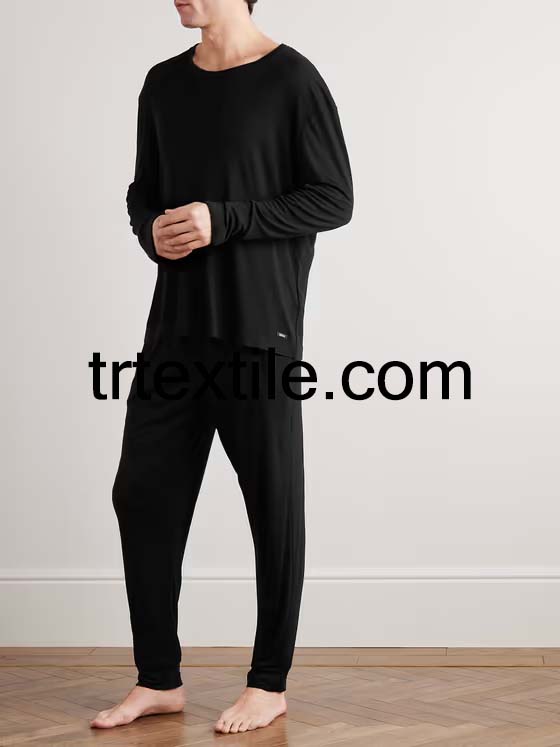Pajamas are a type of clothing that are typically worn for sleeping or lounging around the house. They are usually made from soft and comfortable fabrics such as cotton, silk, or flannel, and come in a variety of styles and designs. Pajamas have been around for centuries, and have evolved over time to suit the changing needs and preferences of consumers.
One of the key factors that determine the success of a pajama production model is the choice of materials used in the manufacturing process. The most common fabric used for making pajamas is cotton, due to its softness, breathability, and durability. Cotton pajamas are comfortable to wear and are suitable for all seasons.
In addition to cotton, silk is another popular choice for making luxury pajamas. Silk pajamas are known for their smooth and luxurious feel, and are often favored by those who are looking for a more elegant and sophisticated sleepwear option. However, silk pajamas are typically more expensive than cotton pajamas, and may require special care when washing.
Flannel is another fabric that is commonly used for making pajamas, particularly in colder climates. Flannel pajamas are thick and cozy, making them ideal for keeping warm on cold winter nights. They are often made from a blend of cotton and synthetic fibers, which helps to improve their durability and ensure they retain their softness over time.
The production process for making pajamas typically involves several steps, including designing, cutting, sewing, and finishing. The design stage involves creating patterns and selecting fabrics that will be used to make the pajamas. Once the design is finalized, the fabric is cut into pieces according to the pattern, and then sewn together to create the final product.
The finishing stage involves adding any embellishments or details to the pajamas, such as buttons, lace, or embroidery. This stage also includes quality control checks to ensure that the pajamas meet the required standards of the brand. Once the pajamas have passed all quality control checks, they are packaged and prepared for distribution to retailers or consumers.
There are several different production models that can be used for making pajamas, depending on the size and scale of the operation. One common production model is the centralized production model, where all aspects of the manufacturing process are carried out in a single location. This model allows for tighter control over quality and consistency, as well as economies of scale in terms of production costs.
Another production model that is commonly used for making pajamas is the outsourced production model, where certain aspects of the manufacturing process are contracted out to third-party suppliers. This model can help to reduce production costs and improve efficiency, but may also present challenges in terms of quality control and supply chain management.
Overall, the success of a pajama production model depends on a combination of factors, including the choice of materials, the efficiency of the manufacturing process, and the ability to meet consumer demand for high-quality and comfortable sleepwear. By carefully considering these factors and implementing a production model that is well-suited to the specific needs of the business, pajama manufacturers can ensure the success of their operations and meet the needs of their customers.




